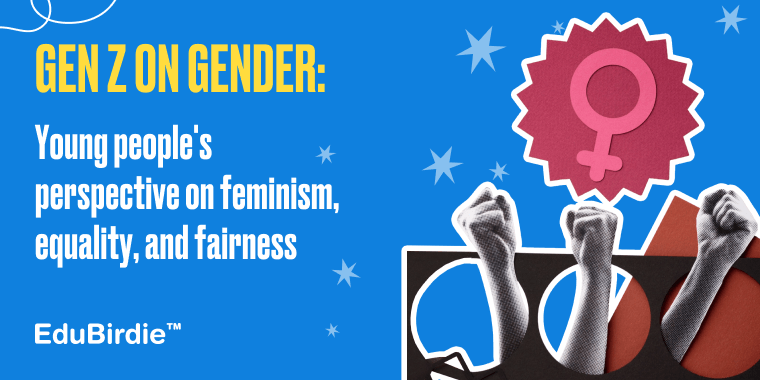
Key insights
- 83% of Gen Z women identify as feminists, while 59% of men also embrace the label.
- 33% of men and 21% of women believe the gender pay gap is a myth, with 44% of men attributing it to women’s incompetence.
- 61% of Gen Z women face discrimination at work, including sexist remarks, lower pay, and inappropriate behavior.
- To make the workplace better for women, nearly eight in ten Gen Zers of both genders agree on the need for menstrual leave, while 66% of women call for stronger anti-harassment policies.
Gen Z is hailed for championing change and standing up for what’s right. They’re fighting for environmental change and are firm defenders of the LGBTQ+ community, but where do they stand on gender equality and women’s rights? Balancing activism, work, and studies can be challenging, so some students opt to pay for assignment support to manage their academic workload while remaining engaged in social issues.
EduBirdie surveyed 2000 Gen Zers, aged 21-28, to get their perspective on gender equality in the workplace and wider society—and how those views differ between men and women. The result shows a generation divided on how rife the problem is yet united in their determination to create a fair and inclusive society for all.
Gen Z and feminism: How gender equality divides the inclusive generation
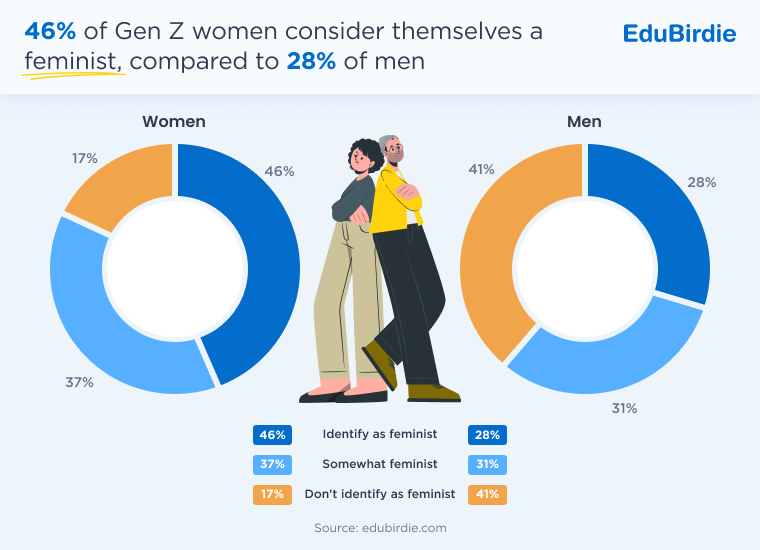
Gen Z presents a united front when tackling the world’s most pressing issues. But when it comes to feminism, a clear divide exists. While 83% of Gen Z women consider themselves at least somewhat of a feminist, just 59% of Gen Z men would label themselves as such.
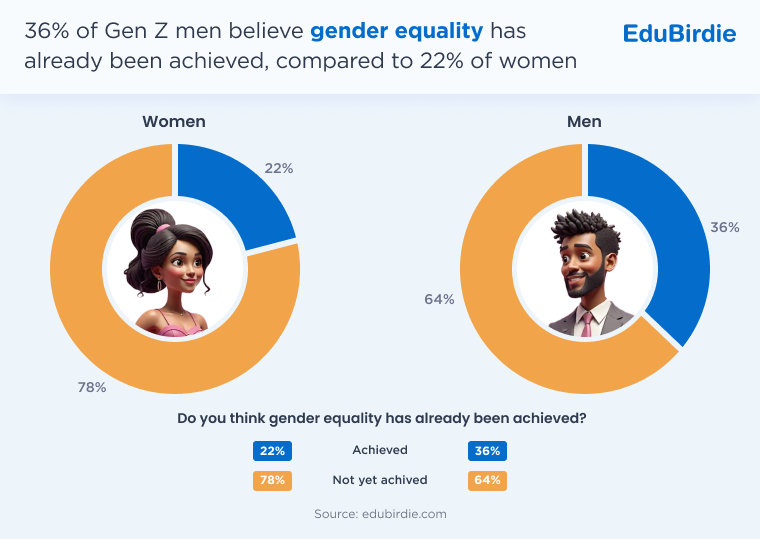
Does that suggest young men aren’t supportive of their female counterparts? Not necessarily. Rather, 36% simply believe that the fight for gender equality has already been won. However, those who know best—women—aren’t so convinced, with just 22% sharing the view that the world treats men and women as equals.
Women, wages, and worth: How Gen Z views women in the workforce
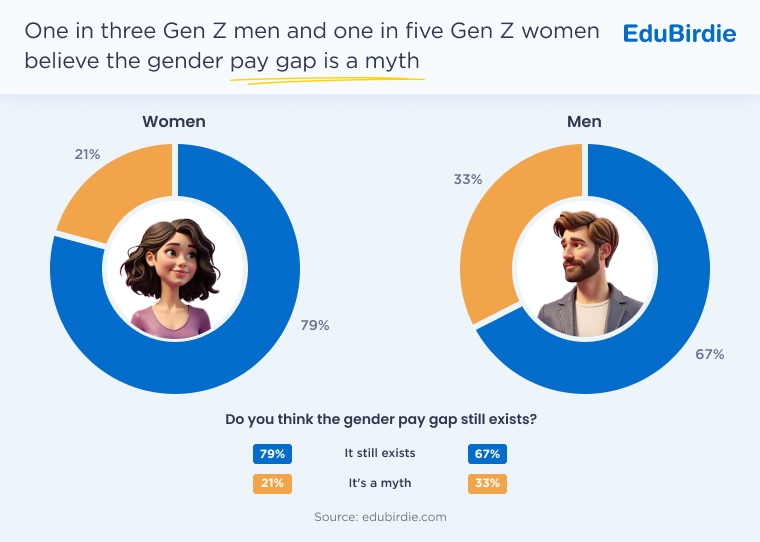
It’s undeniable: for every $1 men take home, women in the same profession earn just $0.84. Yet, 33% of Gen Z men and 21% of Gen Z women insist that the gender pay gap is nothing more than a myth.
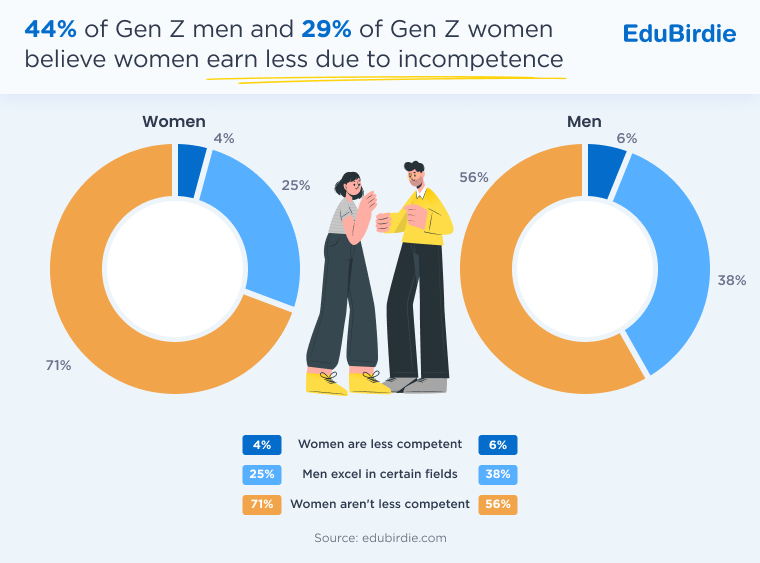
Women aren’t paid their fair share, but according to 44% of Gen Z men and 29% of Gen Z women, there’s a good reason: men are better workers.
While 6% of men and 4% of women insist that females are inherently less capable, 38% and 25% hold the marginally less misogynistic view that men only excel in particular fields. Yet, the millions of strong and successful women thriving in construction, tech, and other male-dominated industries beg to differ.
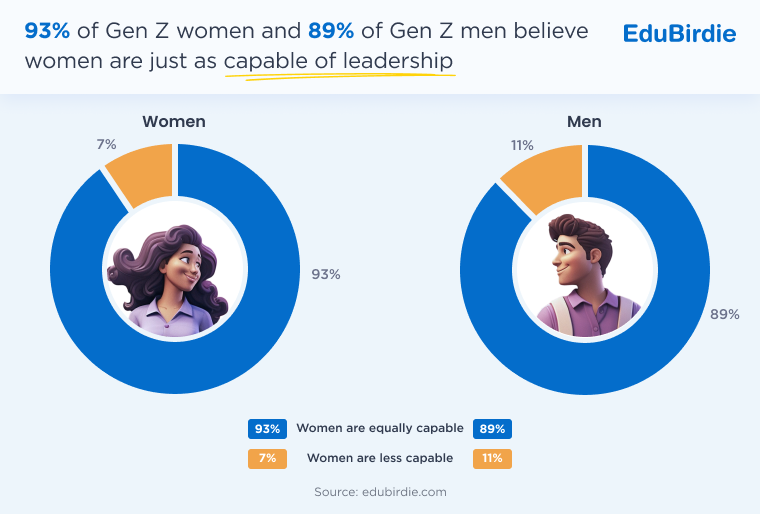
There’s one thing Gen Z seems to agree on: women have a place in the boardroom. Some 93% of women and 89% of men insist that females are just as capable of being great leaders.
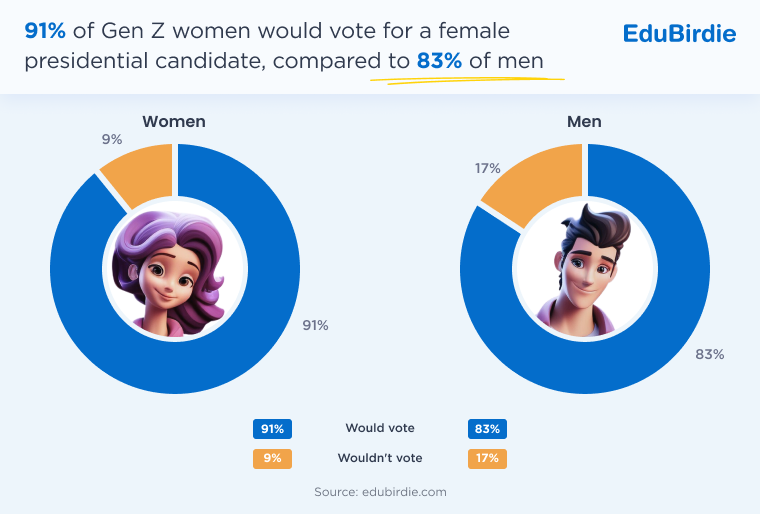
Yet, actions speak louder than words, and the polls paint a revealing picture of how Gen Z really feels. While gender isn’t a factor for most voters, 9% of women and 17% of men say they wouldn’t vote for a female presidential candidate—regardless of their policies, character, or experience.
Gender equality in the workplace: Are women treated as equals?
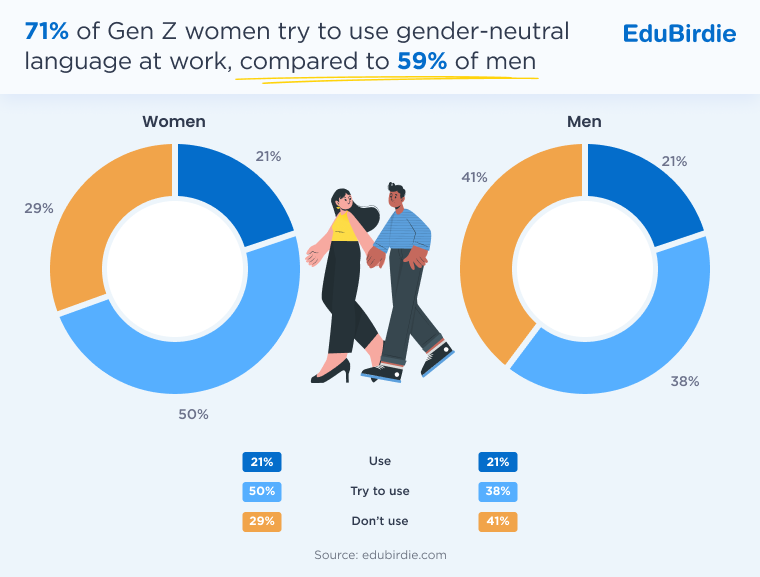
While 41% of Gen Z men think using gender-neutral language at work is unnecessary, 71% of Gen Z women at least try to make an effort—working hard to ensure everyone feels heard, respected, and included.
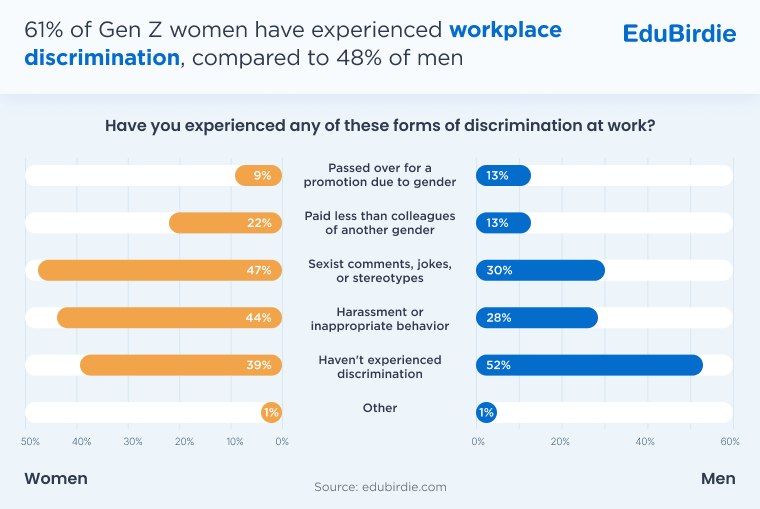
Their reward? Discrimination.
Despite their efforts to create an inclusive workplace, women’s hard work goes unrewarded—47% deal with sexist remarks, 44% face inappropriate behavior, and 22% earn less than their male colleagues. Despite still being in the early stages of their careers, 61% of Gen Z women have had to deal with workplace discrimination, compared to 48% of men.
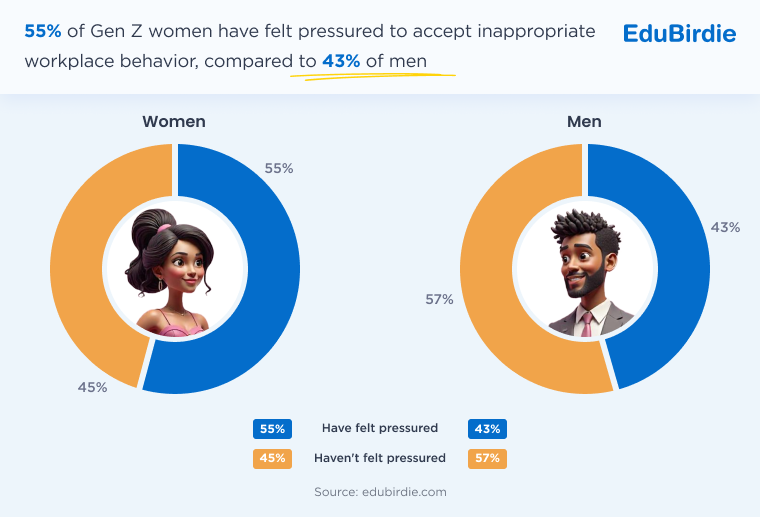
“Lighten up, it’s just a joke”—words that every woman knows all too well. Fearing potential backlash, 55% of Gen Z women have been pressured to let workplace discrimination slide.
The work-life dilemma: Do women have it worse in the workplace?
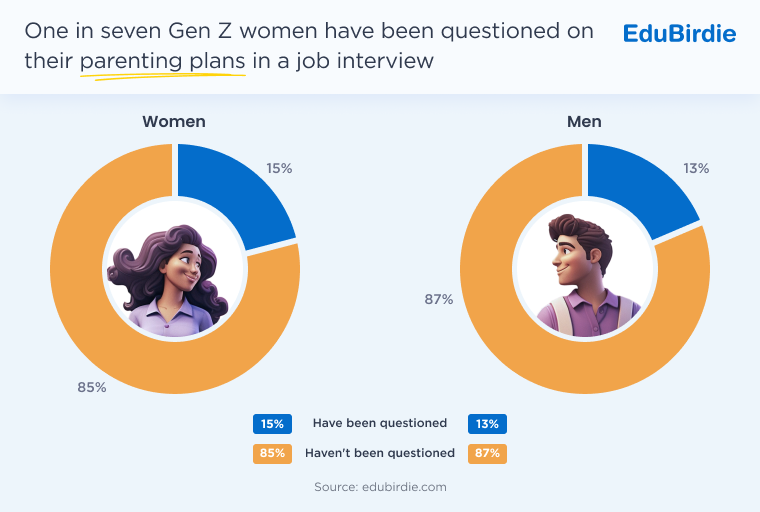
At work, there’s one area where Gen Z men and women in the workplace receive near-equal treatment: both face unwelcomed questions about their personal lives. Some 15% of women and 13% of men have found themselves under the microscope during job interviews, facing questions on their future parenting plans, proving some biases don’t discriminate by gender.
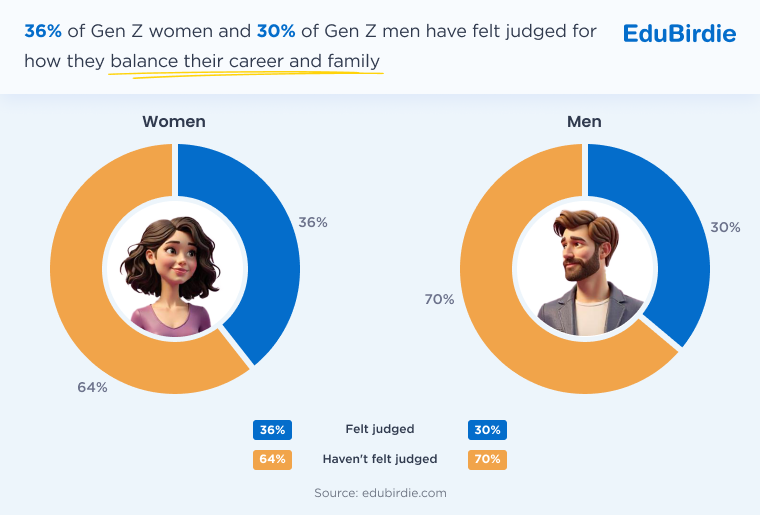
For years, doubts over whether women can juggle their work and personal responsibilities have held back their career growth and earning potential, fueling gender inequality in organizations. Even today, 36% of Gen Z women feel judged for balancing both. However, this struggle is no longer theirs alone—30% of Gen Z men also say they’ve faced the same scrutiny.
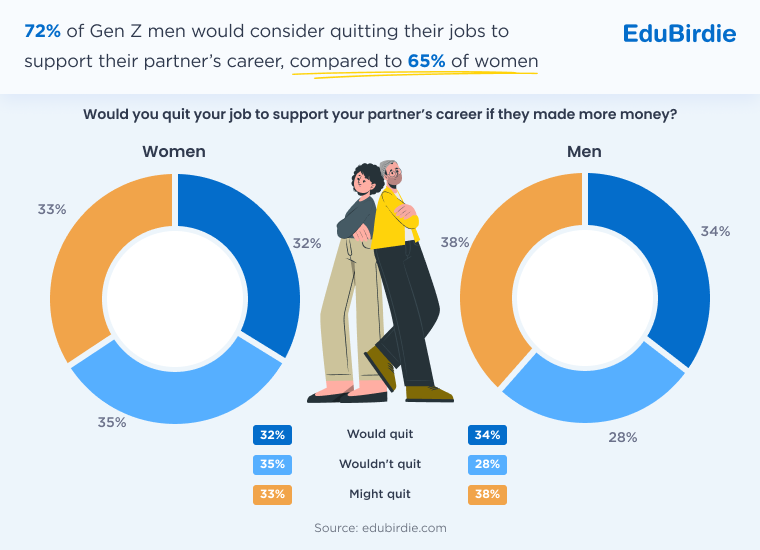
Employers may doubt women’s career commitment, but their partners are far more supportive. Some 72% of Gen Z men insist they’re willing to quit their jobs to support a high-earning partner. However, with women having worked hard to earn respect in the workplace, only 65% of Gen Z women would be willing to do the same.
Achieving workplace gender equality: Creating a workplace that works for women
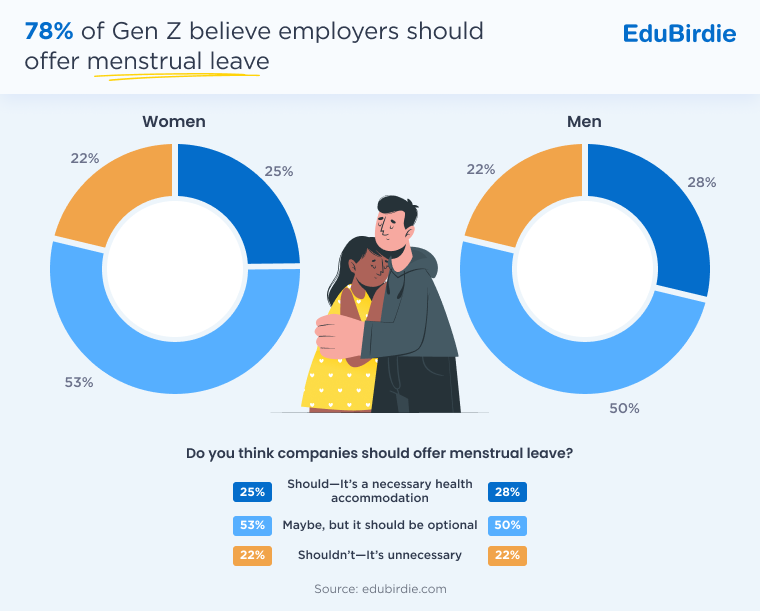
Aware of the impact periods can have on performance and productivity, 78% of Gen Z men and women believe employers should offer menstrual leave, reflecting the generational desire for workplace policies that support women and prioritize wellbeing.
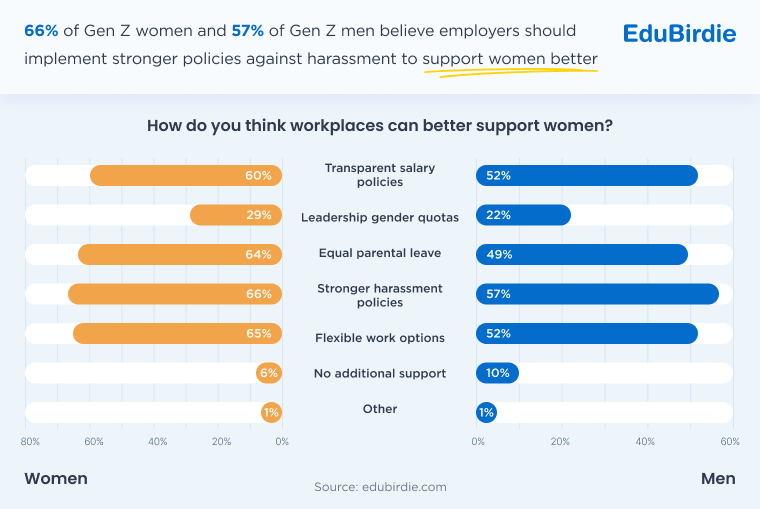
However, at the top of Gen Z’s to-do list is tackling harassment, with 66% of women and 57% of men calling for stronger policies to deter harmful behavior.
Flexible working policies (demanded by 65% of women and 52% of men) are another key concern. Likewise, 64% of women and 49% of men demand equal parental leave—policy changes that would make it far easier for women to balance their work and personal responsibilities.
With women making up almost 40% of the global workforce, the benefits of gender equality in the workplace—a happier workforce that feels truly valued—are good for us all. Businesses, economies, and society depend on their talent and commitment. Yet, gender inequality in the workplace and beyond persists.
Equality is long overdue, and who better to lead the charge than Gen Z—the generation best known for standing up and doing what’s right?
















